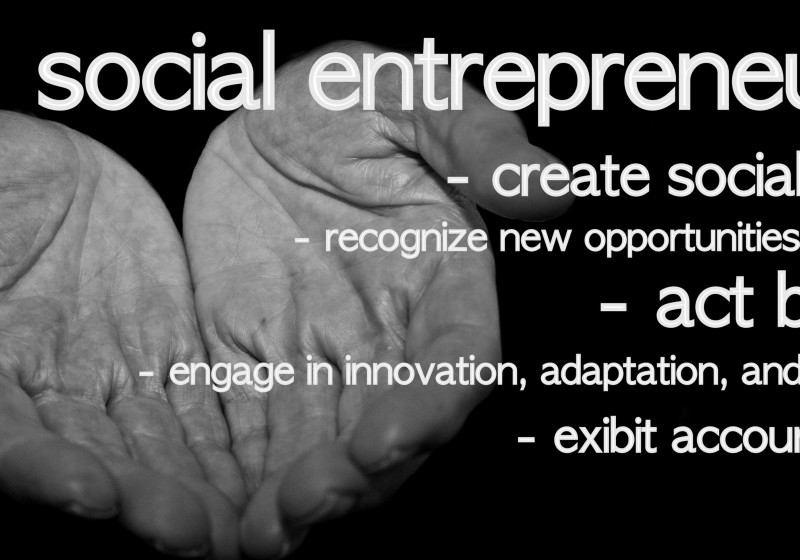9.1.15Social Entrepreneurship Is The New Black
Social Entrepreneurship Is The New Black
Social Entrepreneurship Is The New Black. In his 2013 TED Talk, Harvard Business Strategy professor, Michael Porter, made his case for “why business can be good at solving social problems.” In his speech, he made the bold claim that even massive problems such as climate change and access to water won’t be solved until the business world solves them.
Porter’s speech and the work he’s done since has been a part of a broader conversation surrounding the relationship between business and society that has been gathering steam since the Great Recession.
The Ashoka Foundation, the largest network of social entrepreneurs worldwide, defines social entrepreneurship this way: “Social entrepreneurs are individuals with innovative solutions to society’s most pressing social problems. They are ambitious and persistent, tackling major social issues and offering new ideas for wide-scale change.
Rather than leaving societal needs to the government or business sectors, social entrepreneurs find what is not working and solve the problem by changing the system, spreading the solution, and persuading entire societies to move in different directions.”
Nearly 30 states have passed statutes authorizing a new form of for-profit corporation known as a benefit corporation. The designation allows corporations to go beyond maximizing profits for shareholders to doing what Porter calls “creating shared value,” allowing corporations to utilize resources and consider it’s impact on social issues equally with revenues.
This call to legitimize business again, and reshape capitalism, has also resulted in the creation of hybrid business models, utilizing a combination of non-profit and for-profit entities to do work tackling social issues.
These models often use product sales to fund social missions, reducing dependence on donations, grants and subsidies, as well as to scale the organization. Rather than take a nonprofit model and add a commercial revenue stream – or take a for-profit model and add a charity or service program, these blended models produce both social value and commercial revenue through one unified strategy.
While hybrids have long existed in certain sectors, such as job training and health care, they’ve started to appear in new sectors, including environmental services, consulting, retail, consumer products, and information technology.
This goes beyond corporate philanthropy, driving the creation of social value to the core mission of an organization — and increasing the value of it’s brand.
As the demand/supply gap between current and projected need for talent grows, building an employment brand based on a business foundation that incorporates doing good increasingly becomes good business. Millennials frequently rank meaning high on their list of workplace values, with 84 percent agreeing with statements such as “knowing I am helping to make a positive difference in the world is more important to me than professional recognition” in some surveys.
In fact, workforce development itself is one challenge these innovative business models can tackle.
Coding academies, such as Eleven Fifty Academy, located in Carmel, Indiana, are springing up in many states throughout the U.S. But Eleven Fifty’s strategy is unique. While most academies are built on a for-profit model, Eleven Fifty features a blended strategy.
“Eleven Fifty Academy’s mission is not just to educate programmers, but to help them succeed as entrepreneurs. The innovative, immersive curriculum and approach allows soft skills to be developed simultaneously that are invaluable to an organization,” said Scott Jones, co-founder of Eleven Fifty Academy. “Our business model also enables us to focus on reaching underrepresented talent, assisting our partners in developing talent pipeline streams, and impacting surrounding communities as graduates are prepared for in-demand, high-wage jobs. This approach allows us to be mission-focused, while benefitting all individuals and entities involved.”
As these strategies are still emerging, success will require the leadership, persistence, and resilience necessary when entering any uncharted territory. But the road ahead is clear: business as a movement and a force for good is the movement forward.
-By Deb Owen





